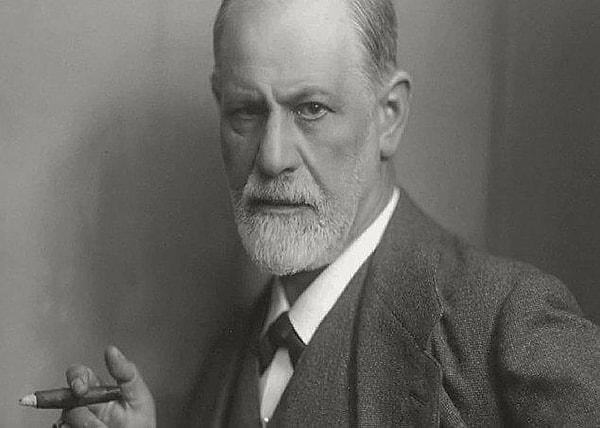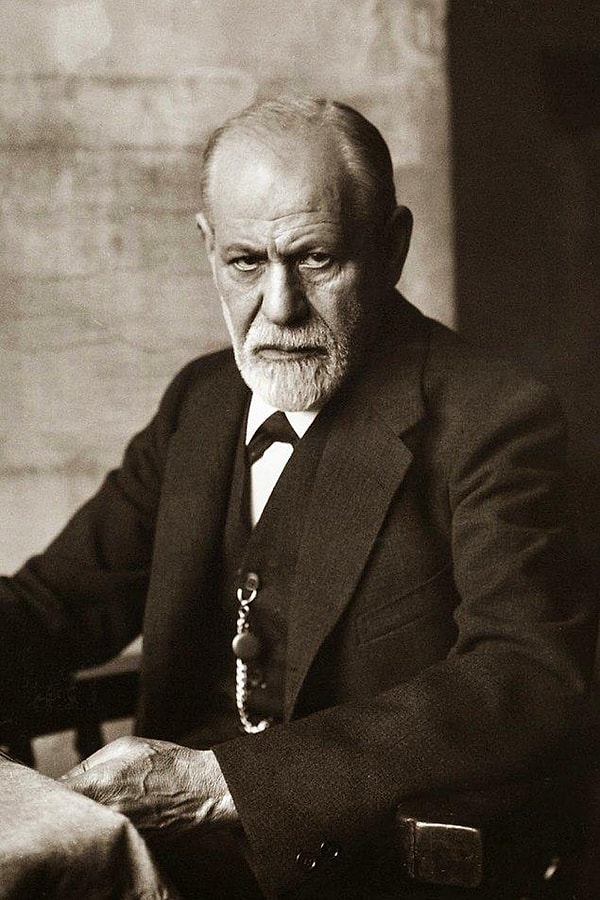The Life and Work of Sigmund Freud: A Journey Through the Father of Psychoanalysis
Sigmund Freud was an Austrian psychologist, writer, and psychoanalyst. Freud attempted to formulate theories about the human mind, mental disorders, and the influence of gender. You can find out more about Sigmund Freud's life in our news. Who is Freud, what has he done? Sigmund Freud's life and death...

The work of Sigmund Freud, the founder of psychoanalysis, marked the beginning of modern, dynamic psychology. His works provided a deeper understanding of abnormal and clinical psychology and the stages of human development. Here is the life of Sigmund Freud...
Who is Sigmund Freud?

His Life
Sigmund Freud was born on May 6, 1856 in Moravia (Czechia). Freud's father married his mother when he was 40 years old. There was a nearly 20-year age gap between them. Freud had two half-siblings from his father's first marriage and they were approximately the same age as his mother. When Sigmund was four years old, the family moved to Vienna.
While attending high school and learning Latin, French, and English, he taught himself Hebrew, Spanish, and Italian. Freud enrolled in medical school in 1873. Vienna had become the capital of the medical world, and young Sigmund was initially drawn to the scientific side of medicine rather than clinical practice.
Freud's Work
Freud received his Doctorate degree at the age of 24. He began working as an assistant at a psychiatric clinic under the supervision of Dr. Theodor Meynert, a famous brain anatomist and neuropathologist. In 1884, he was tasked with conducting a study on cocaine. Freud spent five months in the department of psychiatry (a branch of medicine that deals with emotional and mental health) under the presidency of Theodor Meynert. At that time, psychiatry was rigid and descriptive. The psychological meaning of behavior was not considered important. Freud's later work changed this attitude.
In Vienna, Freud opened his own clinic and began working on hysteria. He started using hypnosis techniques to treat hysterical patients based on the teachings of his colleague Joseph Breuer. Freud called Breuer's treatment 'catharsis'. Breuer and Freud encouraged their patients to speak freely about their symptoms and experiences, and published a study on hysteria. However, this publication was not well received by the medical community.
Although Freud initially worked with Breuer, the paths of these two doctors eventually diverged. This is because Freud believed that neuroses had sexual roots

In later years, Freud deeply investigated the human mind and sexuality. He wrote many works on his theory of sexuality. His work had a lasting impact on critics and academics. His theory was also met with much debate and skepticism.
After 1902, Freud gathered a small group of colleagues on Wednesday evenings to present and discuss psychoanalytic reports. This marked the beginning of the psychoanalytic movement. Swiss psychiatrists Eugen Bleuler and Carl Jung also founded a study group in Zurich, and the first International Psychoanalytic Congress was held in Salzburg in 1908.
His Marriage
Freud met Martha Bernays, the daughter of Emmeline and Berman Bernays, when he was 26 years old and they became engaged two months later. They spent most of the four years prior to their marriage apart. They were married in 1887 and had six children. Their first daughter, Matilde, was born in 1887. Their daughter Anna was one of her father's most famous followers. Anna Freud, who followed in her father's footsteps, was one of the people who played a role in the development of psychoanalysis by helping her father in the field of psychoanalysis

His Death
Freud was diagnosed with cancer of the jaw and palate in 1923. Despite undergoing 33 surgeries, he was unable to hold on to life and died on September 23, 1939.
His Works
The Psychopathology of Everyday Life
The Interpretation of Dreams
Five Lectures on Psycho-Analysis
Totem and Taboo
Beyond the Pleasure Principle
Civilization and Its Discontents
Group Psychology and the Analysis of the Ego
The Ego and the Id
Moses and Monotheism
Three Essays on the Theory of Sexuality
Jokes and Their Relation to the Unconscious
Introductory Lectures on Psycho-Analysis
Inhibitions, Symptoms and Anxiety
The Future of an Illusion
An Outline of Psychoanalysis
Studies on Hysteria
Sigmund Freud was a pioneering figure in the field of psychology and psychoanalysis. Despite the controversy and criticism that surrounded his work, Freud's ideas continue to be widely studied and debated to this day, cementing his place as one of the most influential thinkers of the modern era.
What are your thoughts on Sigmund Freud? Let us see in comments!
Keşfet ile ziyaret ettiğin tüm kategorileri tek akışta gör!


Send Comment